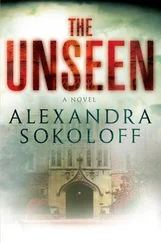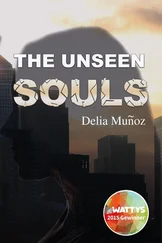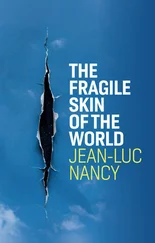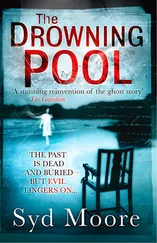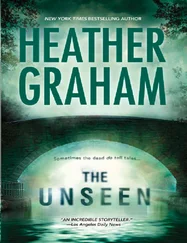The encyclopedia, unfortunately, was not helpful. Mainly, it discussed the legal aspects of childbirth within the context of British jurisprudence. Unhelpful, Harold decided. Volume 23 was slightly more helpful, for within it was Reproduction (a word that Harold knew was vaguely connected to the situation Susan had found herself in, though he could not remember how he had learned this). There were one or two things he thought might be useful, and he wrote down notes on a little scrap of paper he had gotten from the librarian, in a code he had invented for himself several years before. He would bring it to Susan, and explain to her what he’d learned. But it wasn’t much: in general the language was so technical, so scientific, that he could not connect it to his sister Susan, who was vivid, pained, human. All week she had been wandering to school and back like a ghost. Their father had slapped her the night before, hard, for not listening: but Harold knew that she had only been distracted, not intentionally disobedient.
“Harold,” his mother had murmured — his father’s name was Harold, too — but that was all she said.
Susan did not put a hand to her face. She did not alter her expression. Instead, there was an odd, forbidding calm about her, as if she had suddenly made up her mind about something.
He rode home with Mr. Macklin, who was a kind and entirely silent person and the owner of one of the few automobiles in their little town, which made him impressive. He had reached the rank of commander in the U.S. Navy during the First World War, thus lending him an authority that surpassed the authority of anyone else in the town. He also attended the church over which Harold’s father presided, which was the only reason Harold was allowed to go with him when he was invited. In their small town, Harold was recognized as intelligent — someone who might be going places. This recognition meant, in his father’s mind, that Harold had sinned. He was too proud, he told Harold often. Not humble enough. But he respected Mr. Macklin (and also, perhaps, Mr. Macklin’s donations to the church), so when Harold was invited along, he was allowed to go.
“Just make sure you’re not a nuisance,” said his father, each time Mr. Macklin picked him up. Therefore, on their drives together, Harold did not speak, but instead wondered what Mr. Macklin thought about in all that silence. He wondered whether Mr. Macklin — whether any member of the congregation — had an idea of the dual nature of his father, the Reverend Canady: the darkness of him that emerged at home, at night, or sometimes in the late afternoon. Could Mr. Macklin, could anyone in the pews on Sundays, imagine the sheer searing terror of being chased by an adult? Had they been chased by their fathers? Had they been beaten? Yes, Harold told himself; yes, this was a part of childhood. He had heard his friends at school talking about it resignedly, almost bragging about beatings they had gotten. Yet he felt — he knew — that what he received was different. And so he never joined in.
When they returned, he thanked Mr. Macklin politely, descended from the vehicle, and walked toward the house. He felt in his pocket for the scrap of paper. Because it was in code, he would have to read it to Susan; he looked forward to it. It would make him feel needed, important. Perhaps she would thank him.
But he knew something was wrong as soon as he entered the house. It was 6:00 in the afternoon, and his mother was out, and his father was home, sitting at the table, looking dangerous.
Harold’s first instinct was to retreat to his bedroom, but he had caught the gaze of his father, and there was no leaving without words. His father measured him.
“Where’s your sister?” he said lowly.
“I don’t know,” said Harold.
“Speak up,” said his father.
“I don’t know, sir,” said Harold.
“I think you do,” said his father.
Harold was silent. He waited.
“Your mother’s out looking for her,” said his father. “She was supposed to be back here three hours ago to finish her chores.”
He stood up abruptly from behind the table, and Harold’s muscles tightened reflexively. He made himself smaller and firmer. He looked at the floor.
“You’ll do them instead, I guess,” said his father.
Harold looked down until his father was gone, out the door, to parts unknown. Only then did he breathe out. In those days, Harold prayed with some frequency; so he said a brief thoughtless prayer that his sister would not return that night, for he knew what awaited her when she did.
Later, when Susan had still not returned, when the house was empty of her — at 10:00; at midnight; the next morning, when the terrible realization hit him for the first time that she might be gone for good — he tried to take it back; he prayed to undo what he had requested. But he knew, even while he was asking, that it was too late.
Everything was worse with Susan gone. His mother stopped speaking almost entirely. Formerly she had found small outlets in Susan’s sometimes outrageous humor, allowing herself to laugh at her daughter’s antics whenever her husband was not home. Now Harold could not raise his mother, even for a moment, out of the lowness that overtook her, and that would last, as far as he knew, for the rest of her life.
His father swerved wildly between two poles: one was repentance, loud pleas for first an explanation and then forgiveness, prostration before God; the other was increased and dangerous violence, directed at both Harold and his mother. (Harold, he presumed, had been Susan’s confidant— I know already , he had said, don’t lie to me —and in a moment of fear and guilt and shame, Harold had confessed that it was true. What followed was the most profound beating of his life. Several times, he thought that he would die. He did not go to school for two weeks, waiting for the wounds to heal; frequently, as an adult, he still felt a pain in his left shoulder, which had popped out of its socket with a sickening thut when his father jerked him back to stop him from running away.)
The police found her, his sister Susan, exsanguinated in a field near Shawnee. She had been left there by some practitioner of bad medicine, some charlatan. How she had gotten to Shawnee in the first place, what pains she had taken to first learn about the procedure and then to find a ride, would remain a mystery for the rest of Harold’s life. He eyed the boys her age at school, looking for a culprit. He had a hunch about one of them, a shadowy boy who rarely spoke, but whom girls loved fiercely, sighed over, fought over.
His father did what he could to prevent the story from spreading, but certainly people knew what had really happened. Harold knew, too, from eavesdropping when the police first arrived to tell them, though his father had sent him out of the room. He had stood just out of sight, around the corner, despite the risk he took to stay there. When the news was delivered, he had stopped himself from crying out by clamping his own hand over his own mouth. Later he had had to pretend not to have known, in front of his parents, when they broke the news to him again. There was such profound horror in both moments that each memory haunted him forever. First, the horror of the revelation: bled out , the policeman had said, bled out, bled out, bled out ; next, the horror of his father’s delivery of this same news, mangled by his terrible, face-saving lies. An accident , his father had said. Caused by her own disobedience . He had heard people talking about it, too, at the school — the word abortion was not then used — but he understood, in a hazy childish way, what had occurred.
At the funeral — which Harold’s father himself presided over, reveling perversely, Harold thought, in the attention and sympathy — his father had again called her death a tragic accident . He had not elaborated. He had stood at the pulpit, feigning a kind of labored stoicism. For the first time, Harold saw him with a clear, impartial eye: he recognized the narcissism that made his father thrill at the concern, the condolences, proffered by his congregation; he recognized that his father’s show of grief over Susan mainly stemmed from what people would think .
Читать дальше


